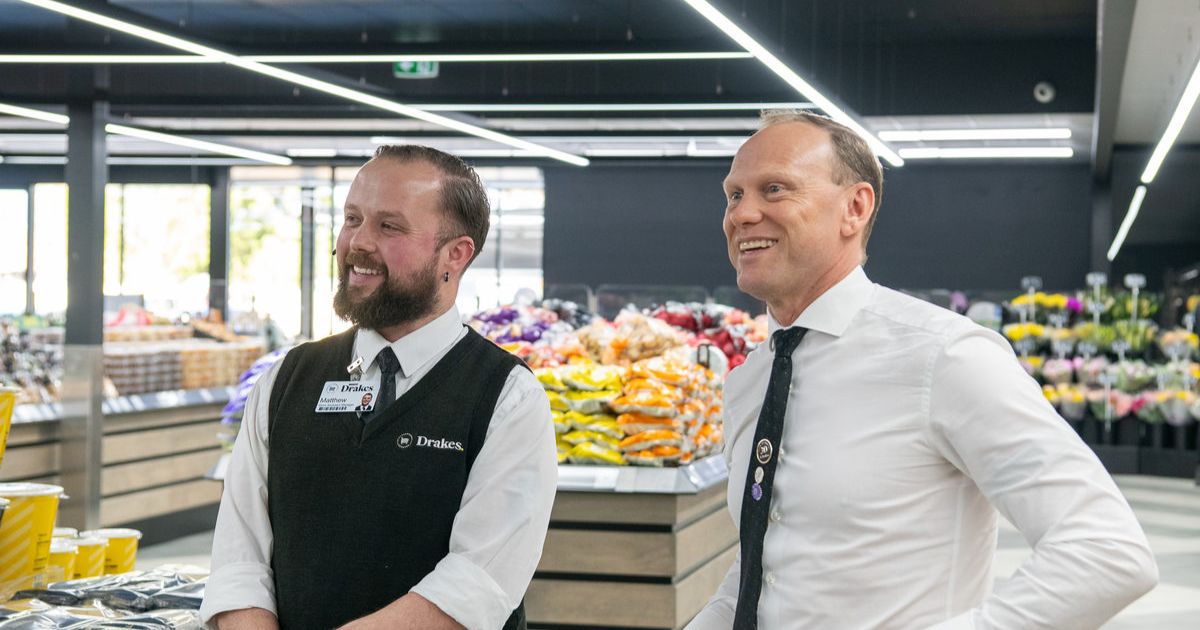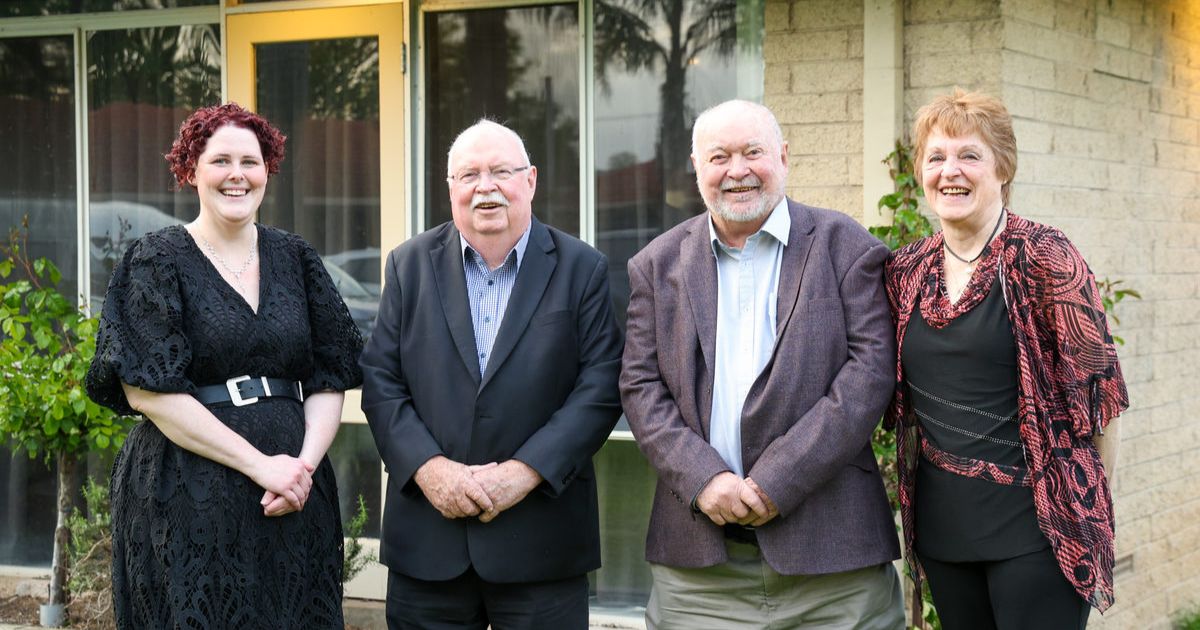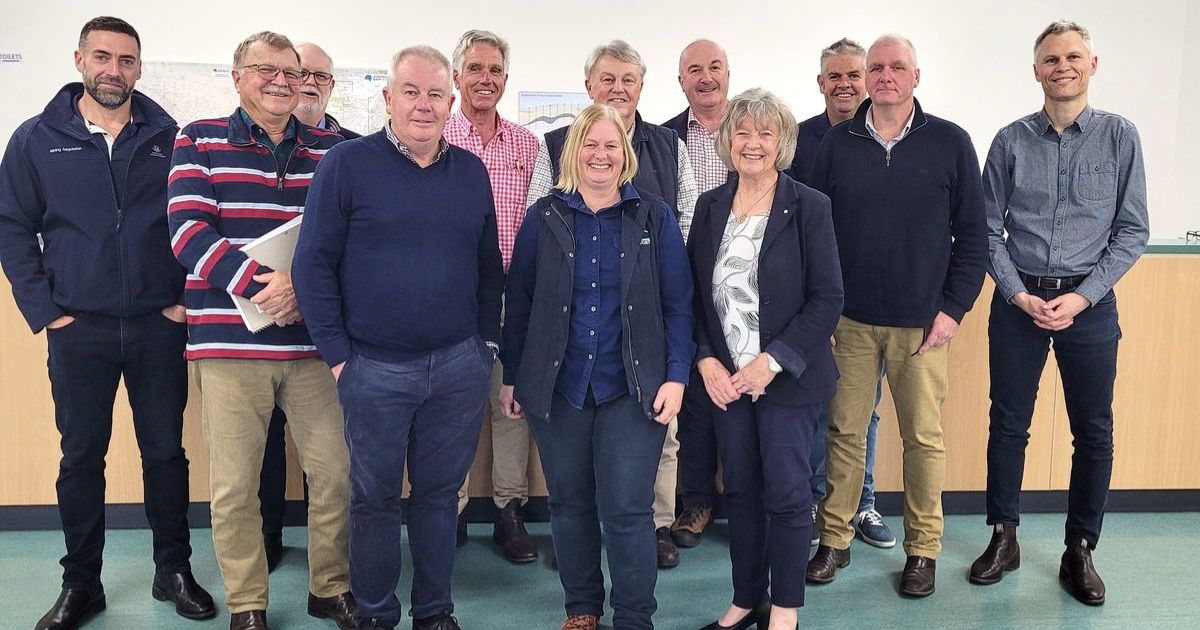Have your say on financial blueprint
It was a big night at the City of Mount Gambier May council meeting with key draft blueprints endorsed ready for community consultation, finetuning and eventual implementation.
The upcoming budget, the long term financial plan with a view to 2034 and a long term asset management plan, also focussing on the upcoming decade, were all created with the community set to be given their chance to comment on the future plans.
Community feedback is crucial for council to determine services and projects. Hard copies of the document are available at the council office on Watson Terrace and at the Mount Gambier Library. Feedback can be submitted online, by email, or in writing until Thursday, June 13.
City of Mount Gambier Mayor Lynette Martin OAM is encouraging ratepayers to take the time to read the Annual Business Plan and Budget to gain a better understanding of council’s decision making process as there are many factors that come into play, including legislative obligations.
Draft budget information sessions will be held at the Mount Gambier Library on Thursday, June 6. from 5.30pm to 6.30pm and on Tuesday, June 11, from 12pm to 1pm. Bookings can be made by phone on (08)8721 2555 or email [email protected]
A Special Council meeting will be held on Tuesday, June 18, for people who wish to present a submission and ask questions.
If you make a submission to the draft budget consultation process and wish to speak to it at the meeting, it would be appreciated if that could be flagged when you submit your feedback via the Have Your Say Mount Gambier website.
At this stage, council plans to adopt the documents at a Special Council meeting for the budget on June 25.
The budget outlines a total spend of $50.3 million in operating expenditure, including: waste management and disposal, development assessment and planning services, the library, community development and events, the depreciation of assets and maintenance of infrastructure assets including roads, footpaths, lighting, storm water drainage, street trees, sporting facilities, open space, cemeteries and other Council properties.
Key projects included in the operating budget:
CBD activation and events,
Internal business systems review,
Master planning for parks and recreation areas.
A proposed $11.4 million capital works program includes maintaining and replacing Council’s existing asset base to invest in long term physical assets, incorporating renewals and investment in new assets or upgrades.
Key projects included in the capital budget:
Renewal of Frew Park amenities,
Civic Centre lift replacement,
Railway Lands nature play area construction,
Various road and footpath works,
Renewal and upgrade of Council’s plant and machinery.
“Council also wishes to deliver some of the aspirational work that is being called for as we explore the community’s vision for Mount Gambier 2035,” Mayor Martin said.
“Residents have told us they care about being a vibrant place where people are connected to each other, so in this draft budget we are prioritising activities such as master planning for Umpherston Sinkhole/Balumbul and Vansittart Park.”
Mayor Martin indicated that draft budget deliberations had been particularly challenging this year, as Council endeavours to balance delivery priorities in a difficult financial climate for many.
“Council is very mindful of cost of living pressures on our community. We have not undertaken this draft budget process lightly, we too live in this community and know that the proposed rate rise impacts everyone, some more than others. I can assure you that councillors understand the important responsibility we are tasked with in setting this budget,” the Mayor said.
“Councillors and staff have spent hours, weeks and months exploring 30 different financial models in seven workshops to come up with a draft budget that ensures that we can provide the services and facilities required to meet community expectations and our key financial targets.
“Council has been doing more with less for a long time and is now at the point that we need to make some very difficult decisions. We can no longer afford to absorb increasing costs.”
Draft budget figures snapshot:
Council proposes to increase rates to 10.24 per cent in general rate revenue (excluding growth) to create organisational capacity and achieve all financial targets by 2026/2027.
Council’s Waste Service Charge (WSC) will go from $217.70 to $311.00 per year, to more accurately reflect the actual costs of delivering waste services to the community in 2024/2025.
Major influences and considerations in the draft 2024/2025 Annual Business Plan and Budget process:
Council is operating in a deficit position – Council’s operating deficit in 2024/2025 is $1.7 million. Council has a financial target to achieve a positive surplus in 2026/2027.
Asset management – Council is the caretaker of more than $400 million in community assets that require ongoing maintenance. Condition audits and valuations were undertaken throughout this financial year for major asset classes and there has been a significant increase in both depreciation ($1.1 million above the adopted LTFP, or 4.83 per cent of the rate increase in 2024/2025). The cost of construction has increased, which in turn has increased the capital works budget and the forward works program which has been informed by the condition audits undertaken.
Inflation – In previous years, Council rates did not keep up with inflation. Rates were below the Consumer Price Index (CPI) for the 2023/2024 financial year.
Growth – In previous years Council did not increase its budget to reflect unprecedented community growth. Council has tried to minimise the impact of increasing costs for ratepayers over several years now. Council has now absorbed as much of that growth as possible.
Federal funding has decreased – Federal Financial Assistance Grants to local government has halved during the past 25 years which means that local communities are missing out on billions of dollars and councils are constantly trying to play catch up. Councils are facing workforce shortages, infrastructure challenges and delivery obligations. City of Mount Gambier is not alone and all councils across South Australia and the country face similar challenges.
Capacity building – Council requires additional capacity to deliver a budget and Long Term Financial Plan that provides the additional levels of service that the community expects and to create the organisational foundations to support efficient and effective delivery of services.
Council’s Treasury Management Policy targets – The policy outlines financial targets – Operating Surplus Ratio (to achieve a positive operating surplus ratio by 2027) and Net Financial Liabilities Ratio (achieve a target of less than 100 per cent of total operating revenue by 2027) for 2026/2027. The proposed budget will ensure that beyond 2024/2025, these targets can be achieved.
Project delivery – Council has been listening to the community throughout consultation on strategies such as the Sport, Recreation and Open Spaces Strategy (SROSS), Shared Path Master Plan, CBD Accessibility Audit and the Mount Gambier 2035 Strategic Plan project to create a collective vision for the city. Council needs the financial capacity to be able to deliver across the Long Term Financial Plan. For example, delivering the Blue Lake Sports Park Master Plan and the CBD Activation Plan.
The City of Mount Gambier’s average residential rates are historically and currently, significantly below the rural state average. In 2023/2024 Council’s average residential rates were $1,223 compared to the South Australian Rural average of $1,725.
Council estimates that for properties sitting in the average range, the rate rise will be an increase of somewhere between $50.00 to $60.00 per quarter, including the WSC. However, this will depend on the individual property valuation.
The WSC highlights the cost to deliver waste services and is proposed to go from $217.70 per year to $311.00 per year, per property in the draft 2024/2025 budget. This is due to new financial modelling that has been undertaken throughout the year, identifying the actual cost of delivering waste services to the community.
“When the WSC was first introduced, it was done so deliberately to highlight that waste is a considerable cost for the community and there are real opportunities in making that cost more transparent to the community to facilitate a conversation about how we all play a role in reducing waste and regaining valuable resources from reusable items that are otherwise thrown away,” Ms Philpott said.
The CEO mentioned that Council has historically endeavoured to keep rates as low as possible to ease the burden on local households. In 2020/2021 Council applied a zero rate increase to assist ratepayers during COVID, and in 2022/2023 and 2023/2024 rate increases were below the Consumer Price Index (CPI).
“We’re a few steps behind as a consequence of that very valid decision in that moment to support the community. But what we are finding now is, to be able to continue to do what the community wants and maintain our assets, we need to do a bit of a reset here, and that is what this draft budget proposal is actually about,” CEO Sarah Philpott said.
The Mayor also made note that council’s throughout Australia rely on Federal Government grant funding, and vital funds have been considerably reduced in recent years.
“Councils are not immune to the universal surge in costs and we are simply not receiving enough Federal Government funding support to help our communities during these tough economic times,” the Mayor said.
The Mayor and CEO encourage all ratepayers and residents to engage with the Draft 2024/2025 Annual Business Plan and Budget consultation process.
“We encourage ratepayers and residents to get involved in the process, read the documents, consider any questions or comments and provide feedback. The most important thing at this point in time is that if people have something to say, they do so through Council’s official contact points,” Mayor Martin said.
Ratepayers experiencing financial hardship can access rate relief options, including alternative payment plans. Contact the rates office on (08)8721 2561 or email [email protected] for assistance.



















